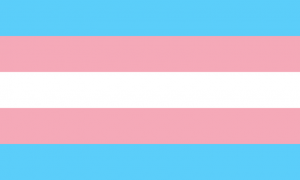
Image Source: Wikipedia
A cursory look at the development of trans rights indicates that the world has made significant progress in addressing the recognition of gender identity rights. These regional and domestic developments do not, however, recompense the reality that transgender persons still suffer some of the most pervasive forms of violence and discrimination. In the absence of concrete universal standards, States are free to formulate laws that grant limited or arbitrary rights to transgender persons.
In Nepal, trans persons may only register under the “Others” category regardless of what gender the person identifies with, while India’s recent 2019 Transgender Persons Act denies transgender persons their fundamental right to self-identification.
The Yogyakarta Principles of 2007 & 2017 are revolutionary as the first international comprehensive enumeration of LGBTQI+ specific universal human rights standards. Endorsed by the courts of Nepal, India & Brazil, they also find routine mention regional and international human rights reports but are yet to be formally accepted by the UN.
Similarly, the United Nations has passed several resolutions that recognize that transgender persons should be guaranteed the right to recognition along with the full range of rights and freedoms by the State, that they suffer aggravated forms of violence and are targets of extrajudicial killings because of their gender identity, and require special protections against torture.
However, the above resolutions and principles remain just that i.e. declarations and statements of a commitment to addressing LGBTQI+ rights in general but holding little statutory or authoritative value.
The international human rights conventions that do create obligations for States make no explicit mention of LGBTQI+ persons and these identities have been subsequently interpreted into the original texts by the UNHRC through General Comments. While this increases the scope of protections offered by the Conventions, the evolution of jurisprudence is extremely slow and creates limited, specific obligations.
Article 26 of the ICCPR prohibits discrimination and gives equal protection to all persons before the law has been interpreted to include transgender persons under the category of “sex”.
Article 9 of the ICCPR has interpreted that the right to liberty is available to “everyone” which includes all persons of LGBTQ identity. Article 12 of the ICESCR has been interpreted to recognize the right to health of transgender persons as a vulnerable group that requires positive State protections. Similarly, the Committee on the Anti-Torture Convention requires special measures to protect transgender persons from torture under Article 2, as well as provide effective redressal mechanisms for transgender victims of torture under Article 14 of the Convention.
Most of these interpretations were made in response to petitions made under the (optional) Individual Complaint Mechanism of the respective human rights treaties or a voluntary reference to trans issues. The ICESCR Committee has referenced transgender rights but consistently cites the lack of comprehensive studies and information to make any conclusive recommendations.
Albeit progressive, these obligations are also not broad enough to cover the systematic discrimination faced by transgender persons in access to justice, healthcare, employment, housing, travel, and education or offer comprehensive protection from gender-based violence, police abuse or physical and psychological torture.
In 2017, the OHCHR released a statement insisting that LGBTQI+ persons are protected under the UN Charter, Universal Declaration on Human Rights and did not require the creation of new specific obligations. Nevertheless, putting the fate of LGBTQI+ rights at the mercy of a notoriously inaccessible and slow treaty interpretation system denies sexual and gender minorities the unequivocal recognition of their rights and dignity. It consequently robs them of their voice in the international law-making process, being consistently dismissed with the question: but are LGBTQI rights human rights under international law?

